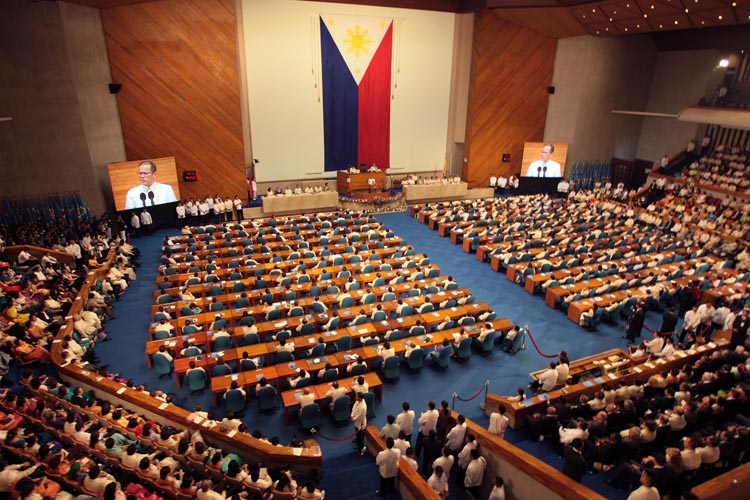
MANILA — The House of Representatives is urging the Senate to pass the proposed Filipino Identification System as contained in HB 5060 to institutionalize a national information card for all Filipinos.
“The proposed statute will greatly facilitate and streamline government transactions and promote a progressive society as envisioned through an efficient delivery of basic services,” the authors said after they have passed the measure on third and final reading.
HB 5060 is in substitution of HB 11, 489, 2243 and 2249 authored by Reps. Al Francis C. Bichara, (Albay); Elisa T. Kho, (Masbate); Rodel M. Batocabe, (Ako Bicol Party-list); Christopher S. Co, (Ako Bicol Party-list); Anthony G. Del Rosario (Davao del Norte); Ferdinand L. Hernandez, (South Cotabato); Rodolfo G. Biazon, (Muntinlupa City); Gloria Macapagal-Arroyo, (Pampanga); Gavini C. Pancho, (Bulacan); Rufus B. Rodriguez, (Cagayan de Oro City); Maximo B. Rodriguez, Jr., (Abante Mindanao); Appropriations Chairman Isidro T. Ungab (Davao City) and Chairperson Marlyn L. Primicias-Agabas (Pangasinan) of the sponsoring Committee on Revision of Laws, among others.
The bill, passed by the House of Representatives on final reading provides for an identification card for all Filipinos whether residing in the Philippines or abroad.
The measure identifies the Philippine Statistics Authority, together with the Department of Foreign Affairs as the implementing agencies of the program, tasked to create and maintain a Filipino Citizen Registry.
Likewise, the proposed law assures protection against unlawful disclosure of information and records obtained in relation to the application for National ID.
Furthermore, it provides for penal sanctions for knowingly using false information in applying for the issuance of Filipino ID, for willful and unjustifiable refusal to accept, acknowledge and recognize the Filipino ID, and the act of connivance by a public official or employee in committing the aforementioned acts.
The bill states: “It is the policy of the State to promote a just and dynamic social order that will ensure the prosperity and independence of the nation and free the people from poverty through policies that provide adequate social services and improved quality life for all.”
“Towards this end, an effective identification system is hereby established to facilitate transactions with the government and to simplify the processes relative to public and private services,” the bill provides.
The initial application and issuance of the Filipino ID card shall be free of charge as part of the government’s social service responsibility. A replacement fee shall be paid by the cardholder.
The pertinent details for applicants with pre-existing government issued identification card shall be utilized and honored as reference in the issuance of the Filipino ID card.
Every Filipino, whether residing in the Philippines or abroad is mandated to register personal information required by the ID system and upon application shall be issued a non-transferable Filipino ID card with an ID number that shall be valid for life, subject to replacement only under circumstances as provided for in the proposed Act.
Filipino cardholders upon reaching the age of 60 years old are required to renew their Filipino ID card, free of charge.
The Filipino ID card shall be made of tamper-proof security material. It shall have on its face the imprinted photograph, name, birth date, gender, date of issue, signature of owner, the corresponding individual serial number issued by the Philippine Statistics Authority (PSA), and such other data as may be deemed necessary. The ID card shall also have the capability to store at least the biometric data of the individual cardholder.
Among other provisions, the bill states that when the ID system has become operational, every Filipino residing in the Philippines shall apply for the registration and issuance of the Filipino ID card at the office of the Local Civil Registrar of the city or municipality where one is a resident.
Likewise, every Filipino residing abroad shall apply for registration and issuance of the Filipino ID card at the nearest Philippine Embassy or Consular Office of the country where they are residing.
The PSA, through the Local Civil Registrar or the Philippine Embassy or Consular Office abroad, is mandated to issue a Filipino ID card within 90 days from the registration of live birth.
Furthermore, the parent or the legal guardian of the minor, incompetent, or disabled person shall be responsible for the application and safekeeping of the issued Filipino ID card.
The PSA, through the local Civil Registry, is directed to conduct mobile registration to ensure registration of all Filipinos including indigenous Filipinos and those in the remote communities. (PNA)